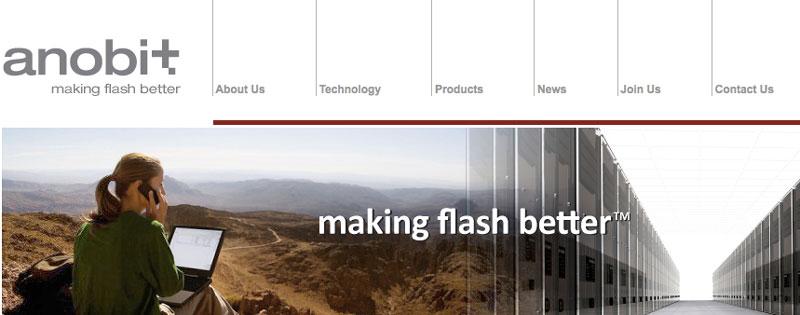Company spokesman Steve Dowling told Bloomberg BusinessWeek that the purchase had been made recently.
“Apple buys smaller technology companies from time to time and we generally do not discuss our purpose or plans,†he added.
Reports emerged last month that Apple planned to acquire the company for as much as $500 million. A Hebrew-language newspaper claimed in late December that the deal had been finalized.
Apple is also believed to be planning a semiconductor development center in Israel, a move that could synergize well with its recent acquisition. The facility would be the first of its kind for the company, which has preferred to contain research efforts within its headquarters.
Apple already uses Anobit parts in its iOS devices and the MacBook Air, and the firm's proprietary "Memory Signal Processing" (MSP) technology reportedly attracted the Cupertino, Calif., company's interest. Anobit claims MSP can improve the reliability, performance, efficiency and endurance of flash memory.
The technology could also offer some cost benefits for Apple, as it allows less expensive types of flash memory to be used. One report claimed Apple could see savings of between 10 to 20 percent on its flash purchases as a result of the Anobit acquisition.
As sales of its iPhone, iPad and MacBook Air products have taken off, the company has become the world's biggest consumer of NAND flash memory in recent years. Sanford C. Bernstein reported earlier this month that the iPhone maker accounted for 23 percent of the world's flash memory purchases last quarter.
In the past, Apple has elected to pre-purchase its flash memory, spending billions of dollars on deals with memory chip makers. Early last year, Apple's then COO Tim Cook said the decision was an "absolutely fantastic use" of the company's cash.
Cook, who now serves as Apple's chief executive officer, went on to say that the company is constantly looking for similar strategic opportunities. Apple revealed last January that it had committed $3.9 billion to secret long-term component contracts similar to its flash pre-purchases.
 Josh Ong
Josh Ong







-m.jpg)






 Charles Martin
Charles Martin
 Christine McKee
Christine McKee
 Wesley Hilliard
Wesley Hilliard
 Malcolm Owen
Malcolm Owen
 Andrew Orr
Andrew Orr
 William Gallagher
William Gallagher
 Sponsored Content
Sponsored Content







20 Comments
"Making flash better."
?
MUST resist the jokes?
I hope they can make some big jumps in NAND read/write speeds quickly.
I hope they can make some big jumps in NAND read/write speeds quickly.
Isn't that the whole reason they bought this company, they are ahead of the curve in that very thing aren't they?
Isn't that the whole reason they bought this company, they are ahead of the curve in that very thing aren't they?
For their iOS devices they are but I don't think by an excessive amount, but for their SSDs they don't seem to be, but that seems to be an issue with the SSD controller they use, going for more reliable over fastest possible.
With Apple issuing patents for Thunderbolt controllers in iOS devices and iOS NAND only writing about 20MB/s it would be nice to speed all of this up substantially. It won't be too many years before the 256GB iPad will arrive.
I hope they can make some big jumps in NAND read/write speeds quickly.
I doubt it, at least now.
MSP's strong point right now is extending the performance of short-life, higher-performance, expensive components to perform more longer-life cheaper components without the performance penalty.
This is a supply chain squeeze. Apple is getting $100 of NAND flash performance for $75 (my example for this forum). With Apple's NAND flash volume and large cash balances, they will further dictate the NAND pricing for competitors.
This isn't about winning benchmarks. This is about getting $25 worth of performance from what others would pay $20 for, on a massive, consumer-market level.
Apple is not fighting this war in a benchmark test suite laboratory. They are battling it on the supply chain front.